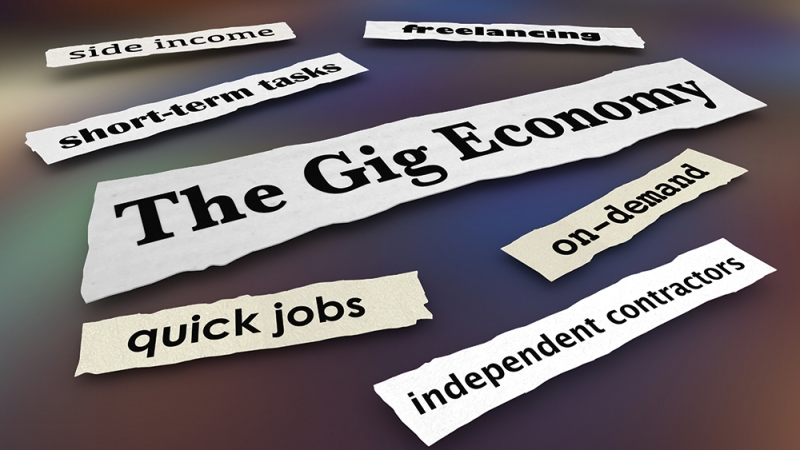Doubled But Down
While cash deals have doubled, they’re only responsible for about 20% of all transactions, which have declined substantially, Barber believes. In hard numbers, he believes the actual quarterly number of cash sales has declined by half, from 500,000 to 250,000. So, while cash money is “helping somewhat” to drive down lending, he says, “it doesn’t look like a major factor.”
Redfin’s latest figures seem to confirm that. While cash deals were down 35% year-over-year in April, overall sales were off 41%. But a a third of the places that did sell went for cash, the highest share in nine years. And NAR’s members are saying the same. “The data from the Realtors Confidence Index is directly from a member survey,” says Jessica Lautz, second in charge of NAR’s economics department. “They are reporting higher shares” of cash sales.
Pushing aside this ongoing debate, let’s look at the impact all-cash deals have had on the mortgage food chain:
Mortgages — If the above figures from ATTOM don’t resonate, here’s this from the Mortgage Bankers Association’s first quarter performance report, courtesy of analyst/advisor Joe Garrett: The loss per loan was 67 basis points. That’s down from a 99-tick loss in last year’s fourth quarter. But lenders are still losing money when they write a mortgage.
Refinancing is all but gone! Not as many people are buying houses! And a third of those who do buy pay with cash! “It’s a triple whammy,” says Michael Isaacs, CEO of Columbus, Ohio-based GO Mortgage, which has actually grown its business by adding loan officers picked up from other companies. “That’s just one more customer we don’t have.”
Meanwhile, a small survey by payroll data company Everee of just 314 commission-based industry professionals — managers, loan officers, processors and underwriters, half of whom had been in the business for more than five years — found that 60% are living from paycheck to paycheck. Moreover, a third of them plan to exit the field in the next 12 months while 15% more haven’t made up their minds.
Mortgage Insurance — The type of home buyer who needs private mortgage insurance is not typically the type who pays with greenbacks. First-timers who have trouble scraping a few nickels together for a downpayment need mortgage insurance, while move-up buyers taking a passel of equity with them from the sale of their former residence are the most likely to pay cash.
Of all the loans purchased using private MI last year, 62% supported first-time buyers, reports Brian Berry, a spokesman for the US Mortgage Insurers trade group. Consequently, the MI business doesn’t slump much when cash buyers proliferate. And that’s why the MI business enjoyed its third best year ever in terms of colume in 2022.
At the same time, though, a surprising 6% of all first-timers paid cash in 2021, NAR reported in May of that year. And it’s likely a similar number are currently paying cash, if not more. So the business has been impacted, if only minimally.
Title Insurance — It’s hard to get a handle on title insurers. The American Land Title Association has no economist on staff, so the group does not produce much in the way of statistics. But spokesman Jeremy Yohe told me he doesn’t think all-cash sales have had much of an impact. “I don’t think it is any greater than during the run-up to the Great Recession,” he said. “Nominal.”
Because title practices vary from state to state, cash deals have had little to no affect in places like Texas where sellers have traditionally paid for the buyer’s coverage. But in markets where buyers pay, title companies usually get two shots at the brass ring — once for the lender’s policy and once for the buyer’s. And when someone pays cash in those places, insurers lose at least the lender-policy share.
Chrissy Ziccardi of SingleSource Property Solutions, the Pittsburgh-based settlement firm, says her company has seen an increase in business recently, largely because it can close deals far more quickly — 16–20 days vs. 30–45 days when a lender’s involved. ‘We can get ‘em in and out the door much quicker,” she told me. But because there are fewer lender-involved loans, revenue is down 20–25%.
The second ring? When buyers understand the benefits of title insurance, they generally buy coverage, says Washington, D.C., settlement attorney Harvey Jacobs. “They usually listen to reason,” he said. “People who don’t (buy coverage) tend to be flippers” who study the market and know their costs.
Perhaps to press the issue, two title companies owned by a major Mid-Atlantic real estate firm reportedly are refusing to settle transactions in which the buyer turns down buyer’s coverage. Repeated attempts for comment from the agency or its in-house title outfits have gone unanswered, so I have been unable to verify this report.
Appraisers — “All of us who focus on the residential market are feeling the slowdown to some extent,” says Appraisal Institute President Craig Steinley of Steinley Real Estate Appraisals in Rapid City, S.D. “This is the third cycle I’ve seen where volume is down; it’s all part of being in the mortgage lending business.”
Steinley can’t point to any specific numbers but he says most cash buyers eventually obtain an appraisal — investors when they put places back on the market after they fix them up or equity-rich move-up buyers when they refinance at a later date to take cash back out of their purchases.













